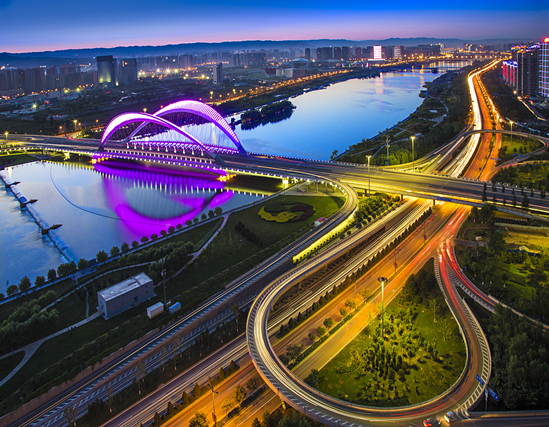Urban residents looking to mountains for leisure
Updated: 2023-08-16
TAIYUAN — On a midsummer evening, the humid wind sweeps through Zhongtiao Mountain in North China's Shanxi province as a growing crowd gathers at a teahouse nestled halfway up a slope.
Near the window is a booth with lotus motifs. Gathered around a lengthy wooden table are several young people, who appear to be in their early 20s, engrossed in conversations about their college lives.
"Our visits here extend beyond tea drinking. We momentarily escape the city's skyscrapers to relish the ambience and expansiveness of this mountain setting," said Li Moran, a young patron at the teahouse.
This is a trend that is on the rise in China's cities as urban residents turn to alpine retreats for relaxation. With the popularity of mountain leisure, camping and increased outdoor gear sales, more city-dwellers are discovering the calming effect of mountain escapes.
In the mountain teahouse, guests can enjoy sips of cold-steeped tea in summer, or tea brewed near small stoves on their tables during winter. These delightful beverages are accompanied by an array of delectable bites and fruit assortments.
This establishment embodies contemporary Chinese aesthetics, concealed within the lush green surroundings. The fusion of vibrant decor and tea artistry has become a hit among the youth, offering an ideal rendezvous spot.
"It was quite unexpected that a teahouse would become a sensation among the younger crowd," said Xie Rui, founder of the teahouse.
Since the teahouse's trial operation at the end of last year, patrons age 18 to 30 have made up a substantial majority of its customers. Their posts, featuring imagery and videos from the teahouse, have become popular across various social media platforms.
A stone's throw from the teahouse, sprawling camping grounds beckon. On pleasant summer nights, tents of all sizes dot the mountainside, their twinkling lights creating an enchanting vista.
A mere half-hour drive separates the urban hubbub from the campsite, which offers private kitchen barbecues, bonfire parties and panoramic views of the city lights.
"Urban campsites are mushrooming, prompting me to invest in camping gear. It's a way to unwind and savor the poetic allure and travel experience nearby," said local resident Wei Dapeng.
To enrich visitors' outdoor experiences, many campsites offer equipment rentals and catering services, all easily accessible via popular group purchasing apps and short-video platforms.
The surge in the "mountain economy" has galvanized sales of outdoor gear.
At French sports brand Decathlon's outlet in the city of Jinzhong in Shanxi, outdoor camping essentials command prime shelf space. The product experiential zones bustle with customers exploring tents, waterproof mats and collapsible furniture.
The summer outdoor sports leaderboard released by major e-commerce platform JD.com in July featured camping wagons and folding chairs, while sales in the quick-dry sun-protective clothing category soared 230 percent year-on-year. For children, stargazing at night while camping is a popular activity, which has boosted the demand for telescopes.
According to data from Tianyancha, a leading corporate information provider in China, prior to 2014, the country only had a few hundred camping-related enterprises. But since 2021, over 90,000 such enterprises have been registered, with more than half emerging within the past year alone.
"Youngsters' willingness to invest in the mountain ambience signifies a shift in consumer preferences," said Zhou Qingjie, a professor at Beijing Technology and Business University.
To nurture the mountain culture tourism sector, robust supporting services and product offerings are imperative. A gradual transition towards structured management will amplify tourists' outdoor encounters, Zhou added.



